
Find Help
More Items From Ergsy search
-

What causes obstructive sleep apnea?
Relevance: 100%
-

What is sleep apnea?
Relevance: 72%
-
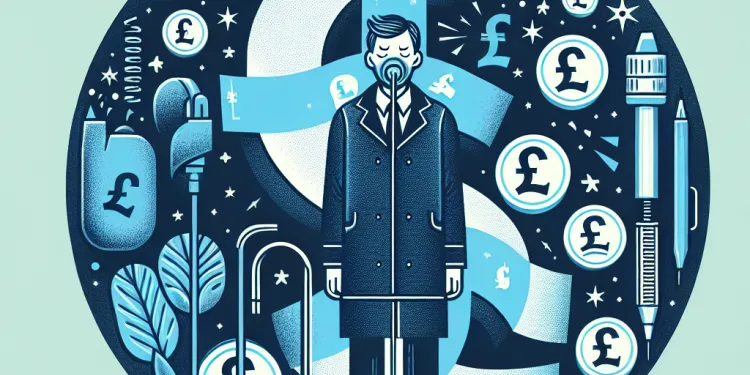
What is sleep apnoea?
Relevance: 71%
-

What are the main types of sleep apnea?
Relevance: 70%
-

What is complex sleep apnea syndrome?
Relevance: 68%
-
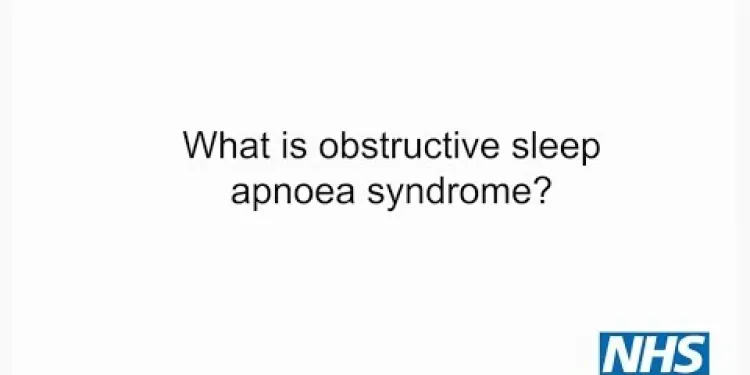
Introduction to obstructive sleep apnoea
Relevance: 68%
-
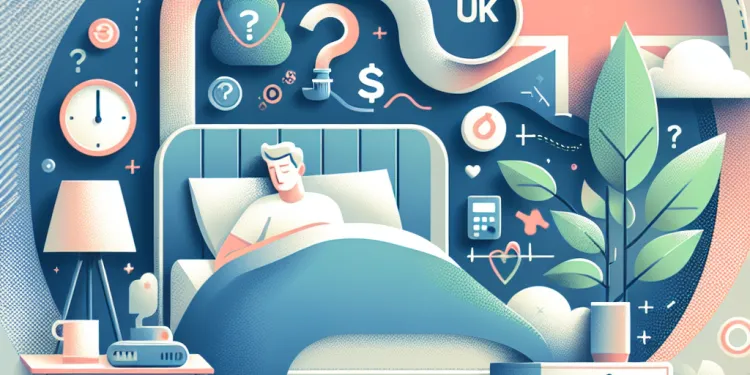
How common is sleep apnea?
Relevance: 67%
-
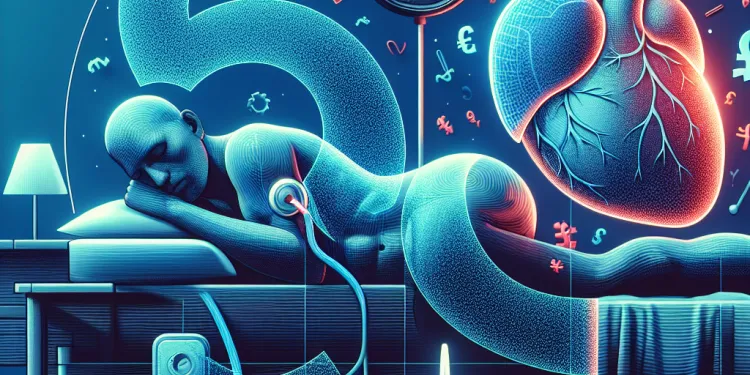
What is complex sleep apnea syndrome?
Relevance: 67%
-

Does sleep apnea occur only in adults?
Relevance: 66%
-
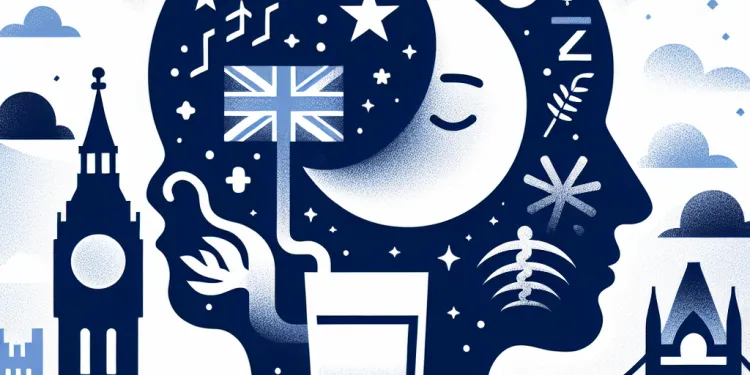
Can alcohol worsen sleep apnea?
Relevance: 65%
-
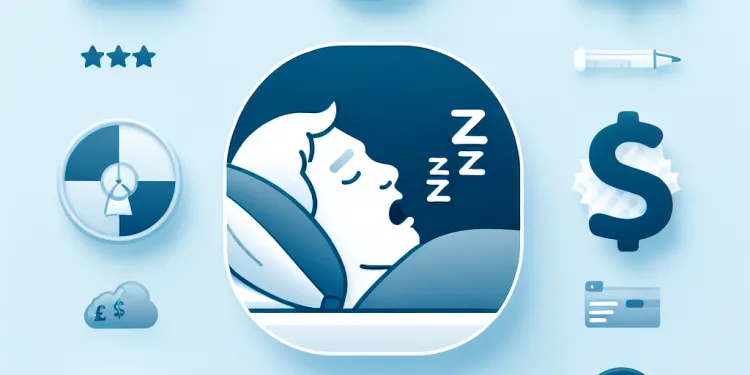
Is snoring always a sign of sleep apnea?
Relevance: 64%
-

Why is sleep apnea dangerous?
Relevance: 64%
-
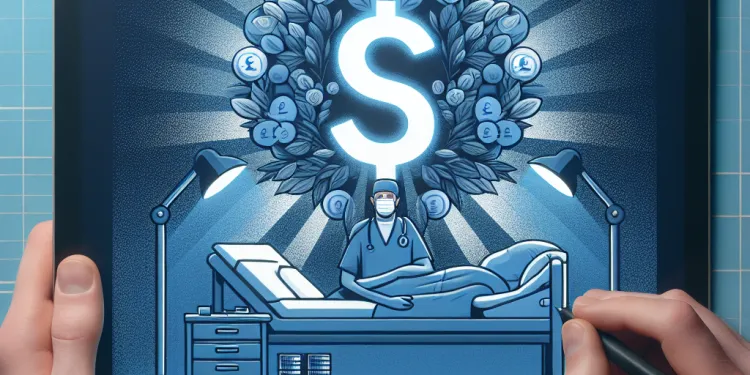
Can sleep apnea be cured?
Relevance: 64%
-
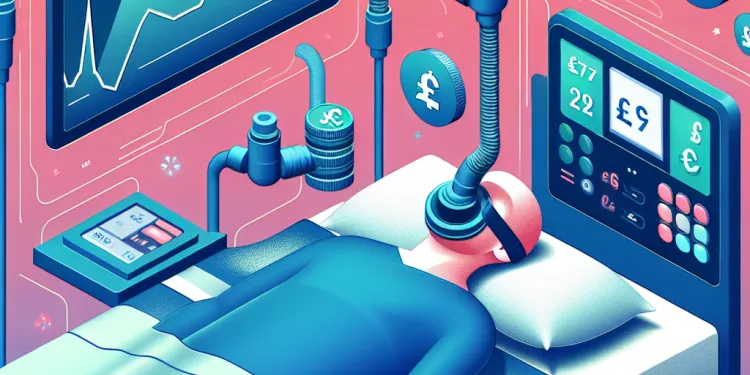
Is CPAP the only treatment for sleep apnea?
Relevance: 63%
-

Evidence-Based Interventions: snoring surgery in the absence of Obstructive Sleep Apnoea (OSA)
Relevance: 62%
-

Can weight loss improve sleep apnea?
Relevance: 61%
-
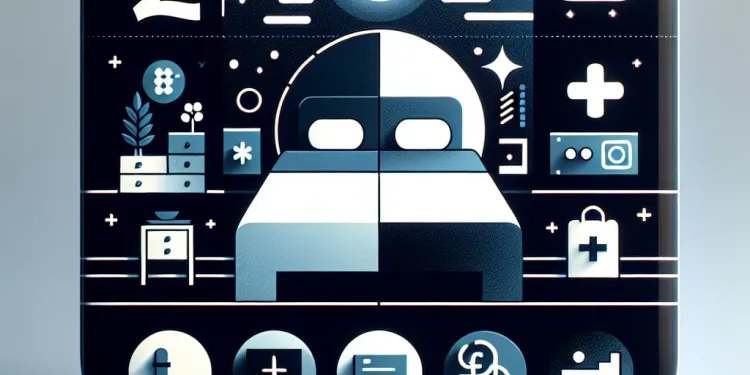
What treatments are available for sleep apnea?
Relevance: 61%
-

What are risk factors for developing sleep apnea?
Relevance: 60%
-

Can children have sleep apnea?
Relevance: 59%
-
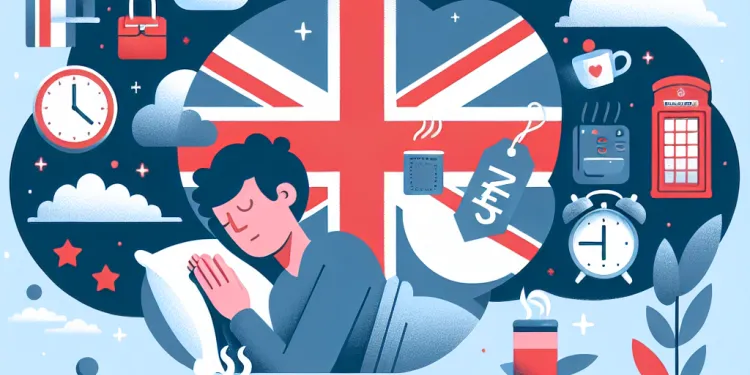
What are common symptoms of sleep apnea?
Relevance: 59%
-

How is sleep apnea diagnosed?
Relevance: 59%
-
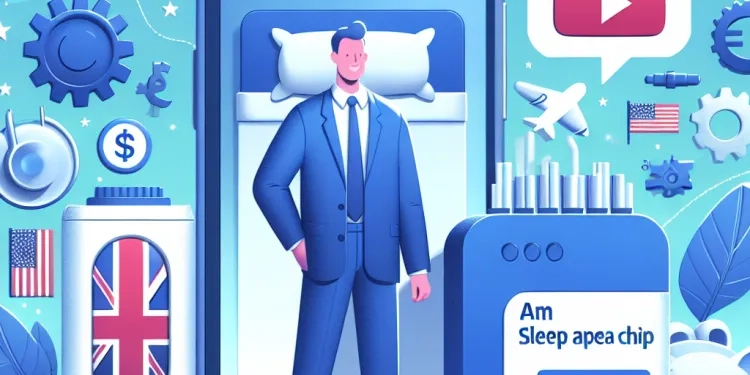
Am I eligible to try the new sleep apnea chip?
Relevance: 58%
-

What lifestyle changes can help manage sleep apnea?
Relevance: 58%
-

What should I do if I suspect I have sleep apnea?
Relevance: 53%
-

How does the new Sleep Apnea Chip work?
Relevance: 52%
-

How does central sleep apnea differ from obstructive sleep apnea?
Relevance: 40%
-

What are the risks associated with baby sleep pillows?
Relevance: 30%
-
What is sleep apnoea?
Relevance: 29%
-
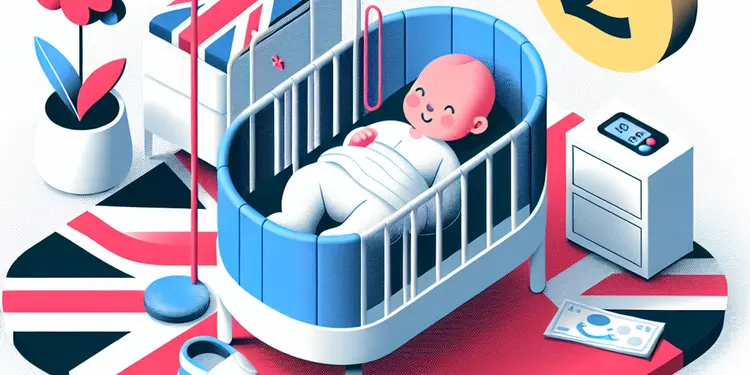
What is the safest sleep environment for an infant?
Relevance: 27%
-
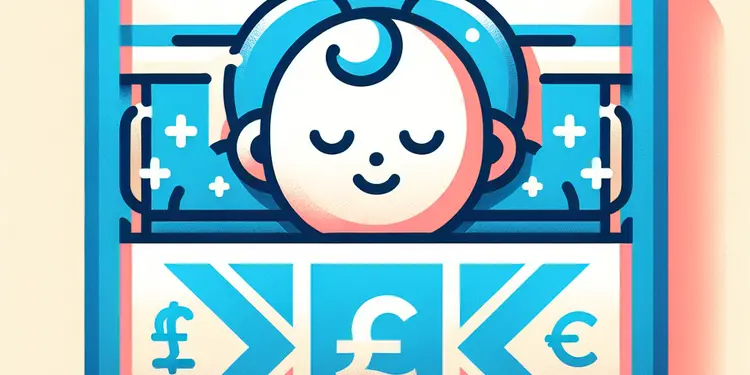
Why are baby sleep pillows not safe for infants?
Relevance: 27%
-

Are baby sleep pillows safe?
Relevance: 26%
-
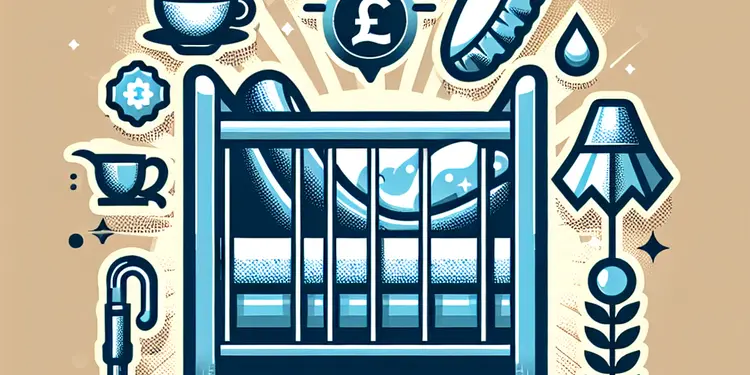
Do crib wedges pose the same risks as baby sleep pillows?
Relevance: 26%
-
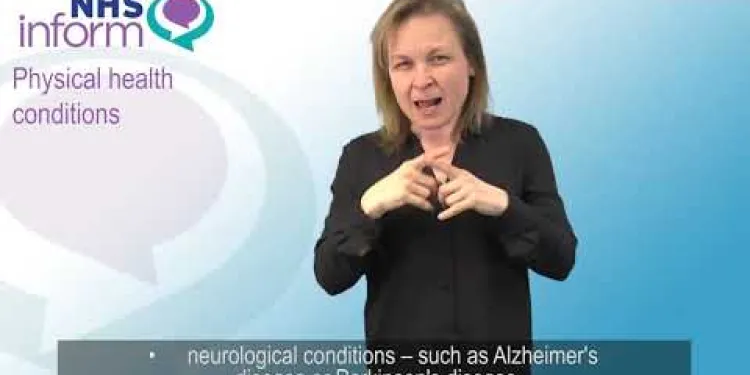
BSL - Causes of insomnia
Relevance: 25%
-

What causes heart failure?
Relevance: 25%
-

How does sleep quality relate to menopause symptoms?
Relevance: 25%
-
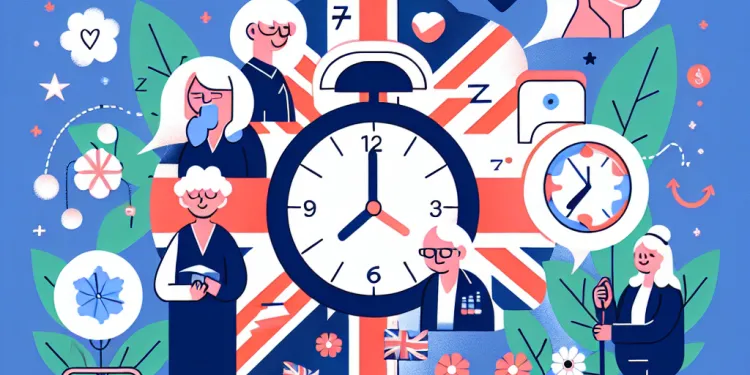
The Importance of Sleep for All Ages
Relevance: 24%
-

What do pediatricians recommend about baby sleep pillows?
Relevance: 24%
-

Are there any benefits to using baby sleep pillows?
Relevance: 24%
-
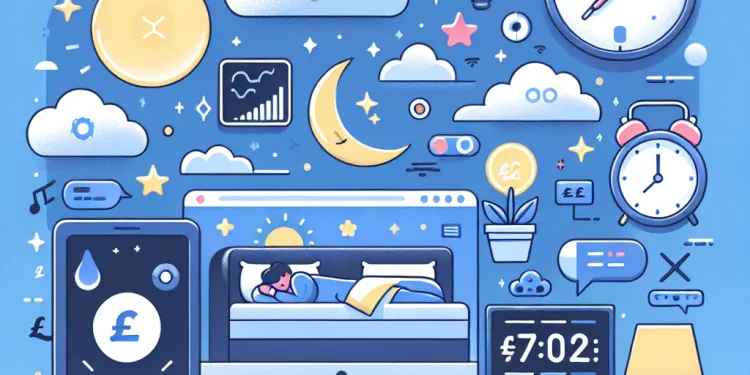
Does screen time affect both sleep onset and sleep maintenance?
Relevance: 23%
-
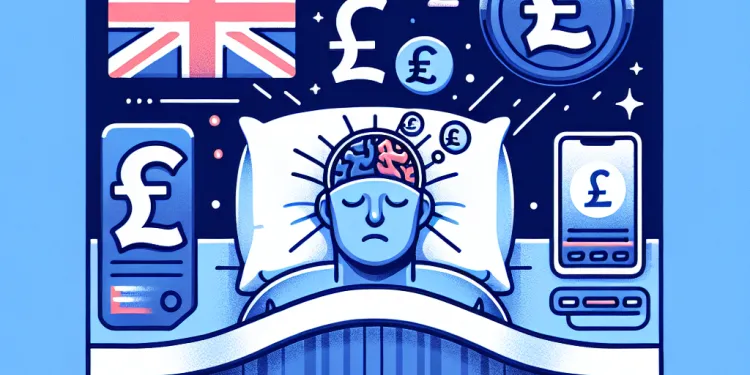
Is it safe to sleep after a concussion?
Relevance: 23%
Understanding Obstructive Sleep Apnea
Obstructive Sleep Apnea (OSA) is a prevalent sleep disorder characterised by repeated interruptions in breathing during sleep. These interruptions, known as apneas, occur when the muscles at the back of the throat fail to keep the airway open. Understanding the causes of OSA can help in diagnosing and treating this condition effectively.
Primary Causes of Obstructive Sleep Apnea
There are various factors and conditions that can lead to OSA. One of the primary causes is excess weight. Obesity contributes significantly to OSA as it increases fat deposits around the neck, exerting pressure on the airway and disrupting normal breathing. The more excess weight a person has, particularly in the upper body, the higher the risk of airway obstruction.
Another major factor is anatomical characteristics. Certain physical features may predispose individuals to OSA. A thick neck circumference can be an indicator, as it often correlates with narrower airways. Abnormalities such as a deviated nasal septum, enlarged tonsils, or a small jaw can also contribute by obstructing airflow. Additionally, the natural aging process impacts muscle tone, including those that support airway structure, thus increasing the likelihood of obstruction.
Lifestyle and Genetic Factors
Lifestyle choices play a crucial role in the development of OSA. Smoking, for example, can increase inflammation and fluid retention in the upper airway, exacerbating symptoms. Alcohol consumption before bedtime causes relaxation of throat muscles, which may lead to obstruction. Furthermore, sedatives or tranquilizers have a similar muscle-relaxing effect, further compromising airway integrity.
Genetics also has a role in OSA. A family history of sleep apnea increases the risk, suggesting that hereditary factors like body composition and fat distribution play a part. Some studies indicate that certain gene variations might predispose individuals to OSA by affecting craniofacial structure or upper airway muscle control.
Medical Conditions and Obstructive Sleep Apnea
Several medical conditions are associated with a heightened risk of developing OSA. Hypothyroidism can lead to tissue swelling, including in the upper airway. Polycystic Ovary Syndrome is another condition linked to OSA, likely due to associated obesity. Moreover, conditions like hypertension and type 2 diabetes have been correlated with sleep apnea, creating a cyclical relationship as OSA can exacerbate these health issues.
Conclusion
Obstructive Sleep Apnea arises from a combination of physical, lifestyle, and genetic factors. Understanding the various causes is crucial for effective management and treatment. Individuals experiencing symptoms or having risk factors should consult healthcare professionals for proper diagnosis and intervention. Addressing underlying causes through weight management, lifestyle adjustments, and medical treatment can significantly improve outcomes for those affected by OSA.
Understanding Obstructive Sleep Apnea
Obstructive Sleep Apnea (OSA) is a common sleep problem. People with OSA stop breathing for short times while they sleep. This happens because the muscles in the back of the throat relax and block the airway. Knowing what causes OSA can help find and treat the problem.
Main Causes of Obstructive Sleep Apnea
There are different reasons why OSA happens. One big reason is being overweight. Having extra weight, especially around the neck, can press on the airway and stop normal breathing. The more overweight someone is, the higher the chance of having breathing problems during sleep.
Some people have physical features that make OSA more likely. A thick neck can mean a narrow airway. Things like large tonsils, a small jaw, or a bent nose can also block air. Getting older can also make the throat muscles weaker, which can cause breathing to stop during sleep.
Lifestyle and Family Factors
How a person lives can affect OSA. Smoking can make the throat swollen and make breathing harder. Drinking alcohol before bed can relax the throat muscles too much. Taking certain medicines that relax muscles can also make it hard to breathe.
OSA can run in families. If someone in the family has OSA, others may get it too. Genes can affect body shape and how fat is stored, which can make OSA more likely. Some genes can also affect how muscles and bones in the face grow, which can make OSA worse.
Medical Problems and Obstructive Sleep Apnea
Some health problems can make OSA more likely. Illnesses like hypothyroidism make throat tissues swell. A condition called Polycystic Ovary Syndrome can also lead to OSA because it can cause weight gain. High blood pressure and diabetes can make sleep apnea worse and vice versa.
Conclusion
OSA happens because of physical traits, lifestyle choices, and family history. It is important to know the causes to treat it well. People who have signs of OSA should talk to a doctor. Managing weight, changing habits, and getting medical help can improve life for those with OSA.
Frequently Asked Questions
What is obstructive sleep apnea?
Obstructive sleep apnea (OSA) is a sleep disorder characterized by repeated interruptions in breathing during sleep due to the blockage of the upper airway.
What causes the airway to become blocked in obstructive sleep apnea?
In obstructive sleep apnea, the airway can become blocked when the muscles in the back of the throat relax excessively, causing the airway to narrow or close as you breathe in.
How does obesity contribute to obstructive sleep apnea?
Excess weight, especially around the neck, can put pressure on the airway, increasing the likelihood of it collapsing during sleep and causing obstructive sleep apnea.
Can genetics play a role in obstructive sleep apnea?
Yes, genetics can influence the structure of the airway and other risk factors like body fat distribution, potentially increasing the risk of obstructive sleep apnea.
How does age affect the risk of developing obstructive sleep apnea?
The risk of obstructive sleep apnea increases as you get older due to age-related changes in the body's structure and muscle tone.
Why are men at higher risk for obstructive sleep apnea than women?
Men are more likely to have obstructive sleep apnea due to differences in fat distribution, airway anatomy, and possibly differences in hormone levels compared to women.
Can alcohol consumption cause obstructive sleep apnea?
Alcohol relaxes the throat muscles, potentially worsening obstructive sleep apnea by increasing airway collapse during sleep.
Can smoking contribute to obstructive sleep apnea?
Yes, smoking can increase inflammation and fluid retention in the upper airway, worsening obstructive sleep apnea.
Are nasal congestions linked to obstructive sleep apnea?
Nasal congestion can contribute to obstructive sleep apnea by making it more difficult to breathe through the nose, increasing reliance on mouth breathing which may worsen airway obstruction.
Can anatomical features of the throat and nose cause obstructive sleep apnea?
Yes, anatomical features like a deviated septum, enlarged tonsils, or a large tongue can contribute to airway obstruction during sleep.
How does sleep position affect obstructive sleep apnea?
Sleeping on your back can worsen obstructive sleep apnea as gravity may cause the tongue and soft tissues to fall back and block the airway.
Can endocrine disorders lead to obstructive sleep apnea?
Conditions like hypothyroidism and acromegaly can increase the risk of obstructive sleep apnea by causing changes in airway anatomy or muscular tone.
Why does increased neck circumference increase obstructive sleep apnea risk?
A larger neck circumference can signify more tissue that might block the airway, especially in positions where gravity exacerbates collapse.
Can jaw structure affect the likelihood of obstructive sleep apnea?
Yes, certain jaw structures, such as a receding chin or small lower jaw, can limit airway space and increase the risk of obstruction.
Do enlarged tonsils cause obstructive sleep apnea in children?
Enlarged tonsils are a common cause of obstructive sleep apnea in children because they can significantly narrow the airway.
How does menopause affect obstructive sleep apnea in women?
Hormonal changes during menopause can lead to a decrease in muscle tone and weight gain, which can contribute to obstructive sleep apnea.
Can frequent use of sedatives lead to obstructive sleep apnea?
Yes, sedatives relax the muscles of the throat, increasing the likelihood of airway obstruction during sleep.
Does the use of certain medications impact obstructive sleep apnea?
Some medications can relax throat muscles or increase weight gain, both of which may worsen obstructive sleep apnea.
Are individuals with obstructive sleep apnea often aware of their condition?
Many people with obstructive sleep apnea are not aware of their condition, as it occurs during sleep. It is often a bed partner or family member who notices the symptoms.
Can lifestyle changes reduce the risk of obstructive sleep apnea?
Yes, lifestyle changes such as losing weight, quitting smoking, and avoiding alcohol close to bedtime can help reduce the risk of obstructive sleep apnea.
What is obstructive sleep apnea?
Obstructive sleep apnea is a sleep problem.
It happens when your throat gets partly or fully blocked while you sleep.
This makes it hard to breathe and can stop your breathing for a short time.
This might make you feel very tired during the day because your sleep is not good.
Using a breathing machine at night can help you sleep better.
Obstructive sleep apnea (OSA) is a sleep problem. It makes you stop and start breathing while you sleep. This happens because something blocks the air going in and out of your throat.
Why does your breathing stop during obstructive sleep apnea?
Obstructive sleep apnea happens when you can't breathe right while sleeping. Here is why:
- Muscles in your throat relax too much.
- The relaxed muscles make your airway smaller.
- It can be hard for air to get through.
Here’s how to help:
- Sleep on your side.
- Use a special pillow or sleep machine (like a CPAP machine).
- Ask a doctor for help.
In obstructive sleep apnea, your throat can close up while you sleep. This happens because the muscles in your throat relax too much. When they relax, the airway gets too small, or it can even close. This makes it hard to breathe in.
How does being very overweight cause problems with breathing during sleep?
Being very overweight can make it hard to breathe while you sleep. Extra fat around the neck can press on the airways, making them smaller. This makes it hard to get air in and out.
When you sleep, the muscles around the airways relax. If the airways are already small, they can close up. This stops air from going in and out. This is called sleep apnea.
Some tools can help, like a CPAP machine. It helps keep the airways open so you can breathe better. Try to sleep on your side, and talk to a doctor if you have trouble sleeping.
Carrying extra weight, especially around your neck, can push on your throat. This makes it more likely it will close up while you sleep. When this happens, it can cause a problem called obstructive sleep apnea.
Here are some tips to help understand:
- Break down words: Read one word at a time.
- Use a finger or a ruler to keep your place while reading.
- Read aloud: Hearing the words helps to understand.
- Take breaks: Rest your eyes if you're reading for a long time.
- Ask for help if you find a word or part that's hard to understand.
Can your genes make you snore while sleeping?
Your body is made up of cells, and each cell has tiny parts called genes.
Sometimes, these genes can affect how you sleep and might make you snore a lot.
If your parent or someone in your family snores, you might snore too because of your genes.
If you snore a lot and it makes you sleepy during the day, you can talk to a doctor. They can help you feel better.
Using special pillows or sleeping on your side might help you snore less, too.
Yes, genetics can affect how the airway is shaped. It can also affect body fat, which might make obstructive sleep apnea more likely.
How does age change the chance of getting obstructive sleep apnea?
As people get older, the chance of having sleep apnea can go up.
When you are older, your muscles, including those in your throat, might not be as strong. This can make it easier for your throat to get blocked when you sleep.
It is important to talk to a doctor if you snore a lot or feel very tired during the day. A doctor can help you find out if you have sleep apnea.
If you think you might have sleep apnea, you can use tools like a sleep diary to track how you sleep. You can write down things like what time you go to bed and wake up.
As you get older, you might have a higher chance of having trouble breathing during sleep. This happens because your body and muscles change with age.
Why do more men get obstructive sleep apnea than women?
Some men have more problems with breathing while they sleep. This is called obstructive sleep apnea. But why is it more common in men than in women?
Here are some reasons:
- Men often have more fat around their necks, which can make it hard to breathe.
- Men's airways can be different from women's, sometimes leading to more blockage.
- Sleep positions and other habits might be different between men and women.
If you have trouble breathing when you sleep, tell an adult you trust. They can help you talk to a doctor.
Special tips to help:
- Use simple breathing exercises before bed.
- Try to sleep on your side instead of your back.
- Ask someone to help you remember your bedtime routine.
Men often get a sleep problem called sleep apnea more than women. This might be because their bodies store fat in different places, their airways are shaped a bit differently, and they might have different hormones.
Does drinking alcohol make it hard to breathe during sleep?
Drinking alcohol before bed can make it hard for some people to breathe while they sleep. This is called sleep apnea. Sleep apnea can make you feel tired because you do not sleep well.
Here are some tips to help:
- Try not to drink alcohol before bed.
- Ask a grown-up for help if you have trouble sleeping.
- Use a special pillow that helps you breathe better.
- Talk to a doctor if you think you have sleep apnea.
Drinking alcohol can make the throat muscles relax. This can make it harder to breathe at night. It can make a sleep problem called obstructive sleep apnea worse. This is because it makes the airway close up more during sleep.
Can smoking make it hard to breathe while sleeping?
Smoking might make it hard to breathe during sleep.
Here are some ways to help breathe better:
- Try not to smoke.
- Talk to a doctor for more help.
- Use a special machine that helps you breathe at night.
Yes, smoking can make swelling and fluid build up in your throat. This can make sleep problems worse, like when you stop and start breathing while you sleep.
Can a stuffy nose cause sleep problems?
When your nose is blocked, it can make a sleep problem called sleep apnea worse. This is because it's harder to breathe through your nose. So, you might breathe through your mouth more, which can make breathing problems during sleep even worse.
Here are some tips to help with breathing:
- You can use special nose sprays to help clear your nose.
- A humidifier can help keep the air moist and easier to breathe.
- Breathing exercises might make it easier to breathe through your nose.
Can the shape of your throat and nose make sleep problems?
Sometimes, the way your throat and nose are shaped can make it hard to breathe when you sleep. This can cause a problem called sleep apnea, which means you stop and start breathing while you sleep.
Tools like a special pillow or a breathing mask can help. Talking to a doctor is a good idea if you think you have this problem.
Yes, sometimes parts of your body can block your breathing when you sleep. This can happen if you have:
- A bent septum (this is the middle part inside your nose).
- Big tonsils at the back of your throat.
- A big tongue.
These might make it hard to breathe while you sleep.
Here are some helpful ideas:
- Talk to a doctor if you think something is blocking your breathing.
- Use a special pillow to keep your head in a good position for breathing.
How does the way you sleep affect sleep apnea?
Sleep apnea is when breathing stops for short times during sleep.
The way you sleep can change how bad sleep apnea is. Lying on your back can make it worse. Sleeping on your side may help you breathe better.
Using a big pillow or a special pillow might help you stay on your side.
If you think you have sleep apnea, talk to a doctor for help.
Sleeping on your back can make breathing problems worse. This is because gravity can make your tongue and soft parts of your throat slide back and block your breathing tube.
Can problems with hormones cause trouble with sleeping and breathing?
Some health problems can make it harder to breathe while you sleep. This is called sleep apnea. Two of these health problems are called hypothyroidism and acromegaly. They can change the way your throat looks or how your muscles work, which makes it harder to breathe.
Why does having a bigger neck make it harder to breathe when you sleep?
People with a bigger neck might have trouble breathing when they sleep. This is called obstructive sleep apnea.
A big neck can press on the throat, making it harder for air to get through. This can cause someone to stop and start breathing while sleeping.
If you or someone you know has this problem, seeing a doctor can help. The doctor can give advice and maybe a special mask to wear at night.
A bigger neck size can mean there is more tissue. This tissue might block the airway and make it hard to breathe, especially when lying down.
Can the shape of your jaw make you more likely to have sleep apnea?
Yes, some jaw shapes, like a chin that is farther back or a small bottom jaw, can make it harder to breathe.
Can big tonsils make it hard for kids to breathe while they sleep?
Big tonsils can make it hard for some kids to breathe while they sleep. This is called sleep apnea. Big tonsils can block the throat, making it hard to get air.
How does menopause change sleep apnea in women?
Menopause can change how women sleep. Some women might get sleep apnea, which makes it hard to breathe when sleeping.
During menopause, hormones in a woman's body change. These changes can make sleep apnea more likely. Women might snore or feel very tired during the day.
If you think you have sleep apnea, talk to your doctor. They can help. A sleep study or special tests can check for sleep apnea.
Using a machine called CPAP can help with breathing at night. Relaxation exercises before bed can also help with better sleep.
When women go through menopause, their bodies change because of hormones. These changes can make muscles weaker and cause weight gain. This can sometimes make it hard to breathe well during sleep, and is called sleep apnea.
It's important to talk to a doctor if you're having trouble sleeping. They can help find ways to make sleep better, like using a special machine or trying some exercises.
Can taking calming medicines often cause trouble breathing during sleep?
If you take calming medicines a lot, it might make it hard to breathe when you sleep. This is called sleep apnea. It means your breathing stops and starts when you sleep.
Here are some things to help:
- Talk to a doctor about how much medicine you take.
- Use a special mask called a CPAP machine to help you breathe at night.
- Try to sleep on your side instead of your back.
- Ask someone you trust for support and talk about your feelings.
Yes, taking sedatives makes the muscles in your throat relax. This can block your airway when you sleep.
Do some medicines change sleep apnea?
Here are some things that might help you:
- Ask a Doctor: Talk to a doctor about your medicine and sleep.
- Sleep Diary: Keep a diary about how you sleep and feel.
- Support Groups: Join a group to share and learn from others.
- Simple Questions: Write down simple questions to ask your doctor.
Some medicines can make throat muscles loose, or make you gain weight. These things can make it harder to breathe while sleeping.
Do people know if they have sleep apnea?
Sleep apnea is when someone stops breathing for short times while sleeping. Most people do not know they have sleep apnea. They might feel very tired during the day. Family or friends might notice they snore or gasp in their sleep.
To help, use these tools:
- Sleep apps: These can tell if you snore.
- A sleep diary: Write down how you sleep and feel every day.
- Talk to a doctor: They can help find out if you have sleep apnea.
Lots of people have trouble breathing when they sleep, called obstructive sleep apnea. They might not know they have it because it happens when they are asleep. Usually, someone who sleeps next to them or a family member will see the signs first.
Can changing how you live help prevent sleep apnea?
If you have trouble understanding this, you can try using tools that read the text out loud. You might also want to talk to someone who can explain it in a way that is easier for you to understand.
Yes, changing the way you live can help with sleep problems. Try to:
- Lose extra weight.
- Stop smoking.
- Don't drink alcohol before bed.
These things can make it easier to breathe when you sleep.
If you find reading hard, you can try:
- Text-to-speech apps that read the words out loud.
- Using pictures to help you understand.
Useful Links
This website offers general information and is not a substitute for professional advice.
Always seek guidance from qualified professionals.
If you have any medical concerns or need urgent help, contact a healthcare professional or emergency services immediately.
- Ergsy carfully checks the information in the videos we provide here.
- Videos shown by Youtube after a video has completed, have NOT been reviewed by ERGSY.
- To view, click the arrow in centre of video.
- Most of the videos you find here will have subtitles and/or closed captions available.
- You may need to turn these on, and choose your preferred language.
- Go to the video you'd like to watch.
- If closed captions (CC) are available, settings will be visible on the bottom right of the video player.
- To turn on Captions, click settings .
- To turn off Captions, click settings again.
More Items From Ergsy search
-

What causes obstructive sleep apnea?
Relevance: 100%
-

What is sleep apnea?
Relevance: 72%
-

What is sleep apnoea?
Relevance: 71%
-

What are the main types of sleep apnea?
Relevance: 70%
-

What is complex sleep apnea syndrome?
Relevance: 68%
-

Introduction to obstructive sleep apnoea
Relevance: 68%
-

How common is sleep apnea?
Relevance: 67%
-

What is complex sleep apnea syndrome?
Relevance: 67%
-

Does sleep apnea occur only in adults?
Relevance: 66%
-

Can alcohol worsen sleep apnea?
Relevance: 65%
-

Is snoring always a sign of sleep apnea?
Relevance: 64%
-

Why is sleep apnea dangerous?
Relevance: 64%
-

Can sleep apnea be cured?
Relevance: 64%
-

Is CPAP the only treatment for sleep apnea?
Relevance: 63%
-

Evidence-Based Interventions: snoring surgery in the absence of Obstructive Sleep Apnoea (OSA)
Relevance: 62%
-

Can weight loss improve sleep apnea?
Relevance: 61%
-

What treatments are available for sleep apnea?
Relevance: 61%
-

What are risk factors for developing sleep apnea?
Relevance: 60%
-

Can children have sleep apnea?
Relevance: 59%
-

What are common symptoms of sleep apnea?
Relevance: 59%
-

How is sleep apnea diagnosed?
Relevance: 59%
-

Am I eligible to try the new sleep apnea chip?
Relevance: 58%
-

What lifestyle changes can help manage sleep apnea?
Relevance: 58%
-

What should I do if I suspect I have sleep apnea?
Relevance: 53%
-

How does the new Sleep Apnea Chip work?
Relevance: 52%
-

How does central sleep apnea differ from obstructive sleep apnea?
Relevance: 40%
-

What are the risks associated with baby sleep pillows?
Relevance: 30%
-
What is sleep apnoea?
Relevance: 29%
-

What is the safest sleep environment for an infant?
Relevance: 27%
-

Why are baby sleep pillows not safe for infants?
Relevance: 27%
-

Are baby sleep pillows safe?
Relevance: 26%
-

Do crib wedges pose the same risks as baby sleep pillows?
Relevance: 26%
-

BSL - Causes of insomnia
Relevance: 25%
-

What causes heart failure?
Relevance: 25%
-

How does sleep quality relate to menopause symptoms?
Relevance: 25%
-

The Importance of Sleep for All Ages
Relevance: 24%
-

What do pediatricians recommend about baby sleep pillows?
Relevance: 24%
-

Are there any benefits to using baby sleep pillows?
Relevance: 24%
-

Does screen time affect both sleep onset and sleep maintenance?
Relevance: 23%
-

Is it safe to sleep after a concussion?
Relevance: 23%


